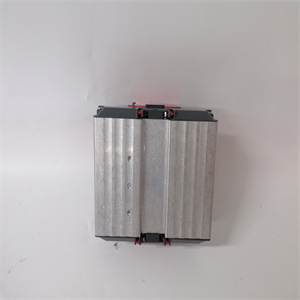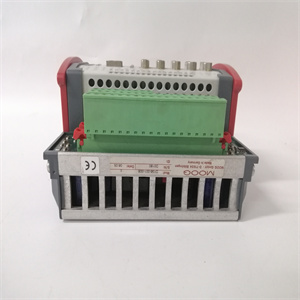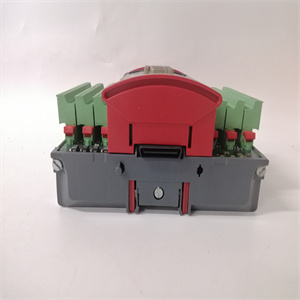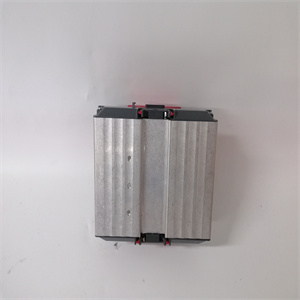1)LD(取指令) 一个常开触点与左母线连接的指令,每一个以常开触点开始的逻辑行都用此指令2)LDI(取反指令) 一个常闭触点与左母线连接指令,每一个以常闭触点开始的逻辑行都用此指令。(3)LDP(取上升沿指令) 与左母线连接的常开触点的上升沿检测指令,仅在指定位元件的上升沿(由OFF→ON)时接通一个扫描周期(4)LDF(取下降沿指令) 与左母线连接的常闭触点的下降沿检测指令。(5)OUT(输出指令) 对线圈进行驱动的指令,也称为输出指令取指令与输出指令的使用说明:1)LD、LDI指令既可用于输入左母线相连的触点,也可与ANB、ORB指令配合实现块逻辑运算2)LDP、LDF指令仅在对应元件有效时维持一个扫描周期的接通。3)LD、LDI、LDP、LDF指令的目标元件为X 、Y 、M 、T、C、S;4)OUT指令可以连续使用若干次(相当于线圈并联),对于定时器和计数器,在OUT指令之后应设置常数K或数据寄存器5)OUT指令目标元件为Y、M、T、C和S,但不能用于X(1)AND(与指令) 一个常开触点串联连接指令,完成逻辑“与”运算。(2)ANI(与反指令) 一个常闭触点串联连接指令,完成逻辑“与非”运算。(3)ANDP 上升沿检测串联连接指令。(4)ANDF 下降沿检测串联连接指令触点串联指令的使用的使用说明:1)AND、ANI、ANDP、ANDF都指是单个触点串联连接的指令,串联次数没有限制,可反复使用2)AND、ANI、ANDP、ANDF的目标元元件为X、Y、M、T、C和S。3)OUT M101指令之后通过T1的触点去驱动Y4称为连续输出。触点并联指令(OR/ORI/ORP/ORF)(1)OR(或指令) 用于单个常开触点的并联,实现逻辑“或”运算。(2)ORI(或非指令) 用于单个常闭触点的并联,实现逻辑“或非”运算3)ORP 上升沿检测并联连接指令。(4)ORF 下降沿检测并联连接指令触点并联指令的使用说明:1)OR、ORI、ORP、ORF指令都是指单个触点的并联,并联触点的左端接到LD、LDI、LDP或LPF处,右端与前一条指令对应触点的右端相连。触点并联指令连续使用的次数不限;2)OR、ORI、ORP、ORF指令的目标元件为X、Y、M、T、C、S。块操作指令(ORB / ANB(1)ORB(块或指令) 用于两个或两个以上的触点串联连接的电路之间的并联。ORB指令的使用说1)几个串联电路块并联连接时,每个串联电路块开始时应该用LD或LDI指令;2)有多个电路块并联回路,如对每个电路块使用ORB指令,则并联的电路块数量没有限制;3)ORB指令也可以连续使用,但这种程序写法不推荐使用,LD或LDI指令的使用次数不得超过8次,也就是ORB只能连续使用8次以下(2)ANB(块与指令) 用于两个或两个以上触点并联连接的电路之间的串联。ANB指令的使用说明:1)并联电路块串联连接时,并联电路块的开始均用LD或LDI指令;2)多个并联回路块连接按顺序和前面的回路串联时,ANB指令的使用次数没有限制。也可连续使用ANB,但与ORB一样,使用次数在8次以下。置位与复位指令(SET/RST1)SET(置位指令) 它的作用是使被操作的目标元件置位并保持(2)RST(复位指令) 使被操作的目标元件复位并保持清零状态。SET、RST指令的使用,当X0常开接通时,Y0变为ON状态并一直保持该状态,即使X0断开Y0的ON状态仍维持不变;只有当X1的常开闭合时,Y0才变为OFF状态并保持,即使X1常开断开,Y0也仍为OFF状态。SET 、RST指令的使用SET指令的目标元件为Y、M、S,RST指令的目标元件为Y、M、S、T、C、D、V 、Z。RST指令常被用来对D、Z、V的内容清零,还用来复位积算定时器和计数器。2)对于同一目标元件,SET、RST可多次使用,顺序也可随意,但后执行者有效。微分指令(PLS/PLF)(1)PLS(上升沿微分指令) 在输入信号上升沿产生一个扫描周期的脉冲输出(2)PLF(下降沿微分指令) 在输入信号下降沿产生一个扫描周期的脉冲输出。利用微分指令检测到信号的边沿,通过置位和复位命令控制Y0的状态PLS、PLF指令的使用说明:1)PLS、PLF指令的目标元件为Y和M;2)使用PLS时,仅在驱动输入为ON后的一个扫描周期内目标元件ON,M0仅在X0的常开触点由断到通时的一个扫描周期内为ON;使用PLF指令时只是利用输入信号的下降沿驱动,其它与PLS相同。主控指令(MC/MCR)1)MC(主控指令) 用于公共串联触点的连接。执行MC后,左母线移到MC触点的后面。2)MCR(主控复位指令) 它是MC指令的复位指令,即利用MCR指令恢复原左母线的位置。在编程时常会出现这样的情况,多个线圈同时受一个或一组触点控制,如果在每个线圈的控制电路中都串入同样的触点,将占用很多存储单元,使用主控指令就可以解决这一问题。MC、MCR指令利用MC N0 M100实现左母线右移,使Y0、Y1都在X0的控制之下,其中N0表示嵌套等级,在无嵌套结构中N0的使用次数无限制;利用MCR N0恢复到原左母线状态。如果X0断开则会跳过MC、MCR之间的指令向下执行。MC、MCR指令的使用说明:1)MC、MCR指令的目标元件为Y和M,但不能用特殊辅助继电器。MC占3个程序步,MCR占2个程序步;)主控触点在梯形图中与一般触点垂直。主控触点是与左母线相连的常开触点,是控制一组电路的总开关。与主控触点相连的触点必须用LD或LDI指令。3)MC指点断开时,在MC和MCR之内的积算定时器、计数器、用复位/置位指令驱动的元件保持其之前的状态不变。非积算定时器和计数器,用OUT指令驱动的元件将复位,22中当X0断开,Y0和Y1即变为OFF。


 1) LD (take command) a command connecting a normally open contact to the left bus, and each logic line starting with the normally open contact uses this command. 2) LDI (take reverse command) a command connecting a normally closed contact to the left bus, and each logic line starting with the normally closed contact uses this command. (3) The rising edge detection command of the normally open contact connected between the LDP (taking the rising edge command) and the left bus is only connected for one scanning cycle (4) when the rising edge of the positioning element is pointed (from off to on). The falling edge detection command of the normally closed contact connected between the LDF (taking the falling edge command) and the left bus. (5) Out (output command) command to drive the coil, also known as output command fetch command and output command instructions: 1) ld and LDI commands can be used to input the contacts connected to the left bus, and can also cooperate with anb and orb commands to realize block logic operation. 2) LDP and LDF commands only maintain the connection of a scanning cycle when the corresponding components are valid. 3) The target components of LD, LDI, LDP and LDF instructions are x, y, m, t, C and S; 4) The out command can be used several times continuously (equivalent to coil parallel connection). For timers and counters, the constant K or data register should be set after the out command. 5) the target components of the out command are y, m, t, C and s, but it cannot be used for a normally open contact series connection command of X (1) and (and command) to complete the logical "and" operation. (2) Ani (and reverse command) a normally closed contact is connected in series to complete the logical "and not" operation. (3) The rising edge of the andp detects the serial connection command. (4) Instructions for the use of andf falling edge detection series connection command contact series connection command: 1) and, ani, andp, andf all refer to the command of single contact series connection. The number of series connections is unlimited and can be used repeatedly. 2) the target components of and, ani, andp, andf are x, y, m, t, C, and s. 3) Driving Y4 through the contact of T1 after the out M101 command is called continuous output. Contact parallel instruction (or/ori/orp/orf) (1) or (or instruction) is used for parallel connection of single normally open contact to realize logical "or" operation. (2) Ori (or not command) is used for parallel connection of single normally closed contact to realize logical "or not" operation 3) ORP rising edge detection of parallel connection command. (4) Instructions for use of ORF falling edge detection parallel connection command contact parallel command: 1) or, ori, ORP and ORF commands refer to the parallel connection of a single contact. The left end of the parallel contact is connected to LD, LDI, LDP or LPF, and the right end is connected to the right end of the contact corresponding to the previous command. The number of continuous use of the contact parallel command is unlimited; 2) The target components of or, ori, ORP and ORF instructions are x, y, m, t, C and s. Block operation command (ORB / anb (1) orb (block or command) is used for parallel connection between circuits with two or more contacts connected in series. Use of orb instruction 1) when several series circuit blocks are connected in parallel, LD or LDI instruction should be used at the beginning of each series circuit block; 2) There are multiple circuit block parallel circuits. If the orb command is used for each circuit block, the number of circuit blocks in parallel is unlimited; 3) Orb instruction can also be used continuously, but this programming method is not recommended. LD or LDI instruction shall not be used more than 8 times, that is, orb can only be used continuously for less than 8 times (2) anb (block and instruction) for series connection between circuits with two or more contacts connected in parallel. Instructions for using anb command: 1) when parallel circuit blocks are connected in series, LD or LDI command is used at the beginning of parallel circuit blocks; 2) When multiple parallel circuit blocks are connected in series with the previous circuit in sequence, there is no limit on the number of times anb commands can be used. Anb can also be used continuously, but like orb, it is used less than 8 times. Set and reset instruction (set/rst1) set (set instruction) its function is to set and maintain the operated target element (2) rst (reset instruction) to reset and maintain the reset state of the operated target element. The use of set and RST commands. When x0 is normally open and connected, Y0 changes to the on state and remains in this state. Even if x0 is disconnected, Y0's on state remains unchanged; Only when X1 is normally open and closed, Y0 becomes off and remains. Even if X1 is normally open and closed, Y0 is still off. The target components of set and RST instructions are y, m and S. the target components of RST instructions are y, m, s, t, C, D, V and Z. Rst instruction is often used to clear the contents of D, Z and V, and to reset the integrating timer and counter. 2) For the same target component, set and RST can be used multiple times, and the order can be arbitrary, but the last executor is valid. Differential command (pls/plf) (1) PLS (rising edge differential command) generates pulse output of one scanning cycle at the rising edge of the input signal (2) PLF (falling edge differential command) generates pulse output of one scanning cycle at the falling edge of the input signal. Use the differential command to detect the edge of the signal, and control the status of Y0 through the set and reset commands. Instructions for the use of PLS and PLF commands: 1) the target components of PLS and PLF commands are y and m; 2) When using PLS, the target element is on only in one scanning cycle after the drive input is on, and M0 is on only in one scanning cycle when the normally open contact of x0 changes from off to on; When PLF command is used, it is only driven by the falling edge of the input signal, and the others are the same as pls. Master command (mc/mcr) 1) MC (master command) is used for connection of common series contacts. After MC is executed, the left busbar moves behind the MC contact. 2) MCR (master control reset instruction) is the reset instruction of MC instruction, that is, use MCR instruction to restore the position of the original left bus. In programming, it often happens that multiple coils are controlled by one or a group of contacts at the same time. If the same contacts are connected in series in the control circuit of each coil, it will occupy a lot of storage units. This problem can be solved by using the master command. MC and MCR instructions use MC N0 M100 to realize the right shift of the left bus, so that Y0 and Y1 are under the control of x0, where N0 represents the nesting level, and there is no limit to the number of times N0 can be used in the non nested structure; Use MCR N0 to restore to the original left bus state. If x0 is disconnected, the instruction between MC and MCR will be skipped and executed downward. Instructions for use of MC and MCR commands: 1) the target components of MC and MCR commands are y and m, but special auxiliary relays cannot be used. MC accounts for 3 procedure steps and MCR for 2 procedure steps;) The main control contact is perpendicular to the general contact in the ladder diagram. The main control contact is a normally open contact connected to the left bus and is the main switch that controls a group of circuits. The contacts connected with the main control contacts must be commanded by LD or LDI. 3) When MC refers to disconnection, the integrating timer, counter and components driven by reset / set command in MC and MCR remain unchanged. For non integrating timers and counters, components driven by out command will be reset. When x0 is disconnected in 22, Y0 and Y1 will become off.
1) LD (take command) a command connecting a normally open contact to the left bus, and each logic line starting with the normally open contact uses this command. 2) LDI (take reverse command) a command connecting a normally closed contact to the left bus, and each logic line starting with the normally closed contact uses this command. (3) The rising edge detection command of the normally open contact connected between the LDP (taking the rising edge command) and the left bus is only connected for one scanning cycle (4) when the rising edge of the positioning element is pointed (from off to on). The falling edge detection command of the normally closed contact connected between the LDF (taking the falling edge command) and the left bus. (5) Out (output command) command to drive the coil, also known as output command fetch command and output command instructions: 1) ld and LDI commands can be used to input the contacts connected to the left bus, and can also cooperate with anb and orb commands to realize block logic operation. 2) LDP and LDF commands only maintain the connection of a scanning cycle when the corresponding components are valid. 3) The target components of LD, LDI, LDP and LDF instructions are x, y, m, t, C and S; 4) The out command can be used several times continuously (equivalent to coil parallel connection). For timers and counters, the constant K or data register should be set after the out command. 5) the target components of the out command are y, m, t, C and s, but it cannot be used for a normally open contact series connection command of X (1) and (and command) to complete the logical "and" operation. (2) Ani (and reverse command) a normally closed contact is connected in series to complete the logical "and not" operation. (3) The rising edge of the andp detects the serial connection command. (4) Instructions for the use of andf falling edge detection series connection command contact series connection command: 1) and, ani, andp, andf all refer to the command of single contact series connection. The number of series connections is unlimited and can be used repeatedly. 2) the target components of and, ani, andp, andf are x, y, m, t, C, and s. 3) Driving Y4 through the contact of T1 after the out M101 command is called continuous output. Contact parallel instruction (or/ori/orp/orf) (1) or (or instruction) is used for parallel connection of single normally open contact to realize logical "or" operation. (2) Ori (or not command) is used for parallel connection of single normally closed contact to realize logical "or not" operation 3) ORP rising edge detection of parallel connection command. (4) Instructions for use of ORF falling edge detection parallel connection command contact parallel command: 1) or, ori, ORP and ORF commands refer to the parallel connection of a single contact. The left end of the parallel contact is connected to LD, LDI, LDP or LPF, and the right end is connected to the right end of the contact corresponding to the previous command. The number of continuous use of the contact parallel command is unlimited; 2) The target components of or, ori, ORP and ORF instructions are x, y, m, t, C and s. Block operation command (ORB / anb (1) orb (block or command) is used for parallel connection between circuits with two or more contacts connected in series. Use of orb instruction 1) when several series circuit blocks are connected in parallel, LD or LDI instruction should be used at the beginning of each series circuit block; 2) There are multiple circuit block parallel circuits. If the orb command is used for each circuit block, the number of circuit blocks in parallel is unlimited; 3) Orb instruction can also be used continuously, but this programming method is not recommended. LD or LDI instruction shall not be used more than 8 times, that is, orb can only be used continuously for less than 8 times (2) anb (block and instruction) for series connection between circuits with two or more contacts connected in parallel. Instructions for using anb command: 1) when parallel circuit blocks are connected in series, LD or LDI command is used at the beginning of parallel circuit blocks; 2) When multiple parallel circuit blocks are connected in series with the previous circuit in sequence, there is no limit on the number of times anb commands can be used. Anb can also be used continuously, but like orb, it is used less than 8 times. Set and reset instruction (set/rst1) set (set instruction) its function is to set and maintain the operated target element (2) rst (reset instruction) to reset and maintain the reset state of the operated target element. The use of set and RST commands. When x0 is normally open and connected, Y0 changes to the on state and remains in this state. Even if x0 is disconnected, Y0's on state remains unchanged; Only when X1 is normally open and closed, Y0 becomes off and remains. Even if X1 is normally open and closed, Y0 is still off. The target components of set and RST instructions are y, m and S. the target components of RST instructions are y, m, s, t, C, D, V and Z. Rst instruction is often used to clear the contents of D, Z and V, and to reset the integrating timer and counter. 2) For the same target component, set and RST can be used multiple times, and the order can be arbitrary, but the last executor is valid. Differential command (pls/plf) (1) PLS (rising edge differential command) generates pulse output of one scanning cycle at the rising edge of the input signal (2) PLF (falling edge differential command) generates pulse output of one scanning cycle at the falling edge of the input signal. Use the differential command to detect the edge of the signal, and control the status of Y0 through the set and reset commands. Instructions for the use of PLS and PLF commands: 1) the target components of PLS and PLF commands are y and m; 2) When using PLS, the target element is on only in one scanning cycle after the drive input is on, and M0 is on only in one scanning cycle when the normally open contact of x0 changes from off to on; When PLF command is used, it is only driven by the falling edge of the input signal, and the others are the same as pls. Master command (mc/mcr) 1) MC (master command) is used for connection of common series contacts. After MC is executed, the left busbar moves behind the MC contact. 2) MCR (master control reset instruction) is the reset instruction of MC instruction, that is, use MCR instruction to restore the position of the original left bus. In programming, it often happens that multiple coils are controlled by one or a group of contacts at the same time. If the same contacts are connected in series in the control circuit of each coil, it will occupy a lot of storage units. This problem can be solved by using the master command. MC and MCR instructions use MC N0 M100 to realize the right shift of the left bus, so that Y0 and Y1 are under the control of x0, where N0 represents the nesting level, and there is no limit to the number of times N0 can be used in the non nested structure; Use MCR N0 to restore to the original left bus state. If x0 is disconnected, the instruction between MC and MCR will be skipped and executed downward. Instructions for use of MC and MCR commands: 1) the target components of MC and MCR commands are y and m, but special auxiliary relays cannot be used. MC accounts for 3 procedure steps and MCR for 2 procedure steps;) The main control contact is perpendicular to the general contact in the ladder diagram. The main control contact is a normally open contact connected to the left bus and is the main switch that controls a group of circuits. The contacts connected with the main control contacts must be commanded by LD or LDI. 3) When MC refers to disconnection, the integrating timer, counter and components driven by reset / set command in MC and MCR remain unchanged. For non integrating timers and counters, components driven by out command will be reset. When x0 is disconnected in 22, Y0 and Y1 will become off.







 客服1
客服1